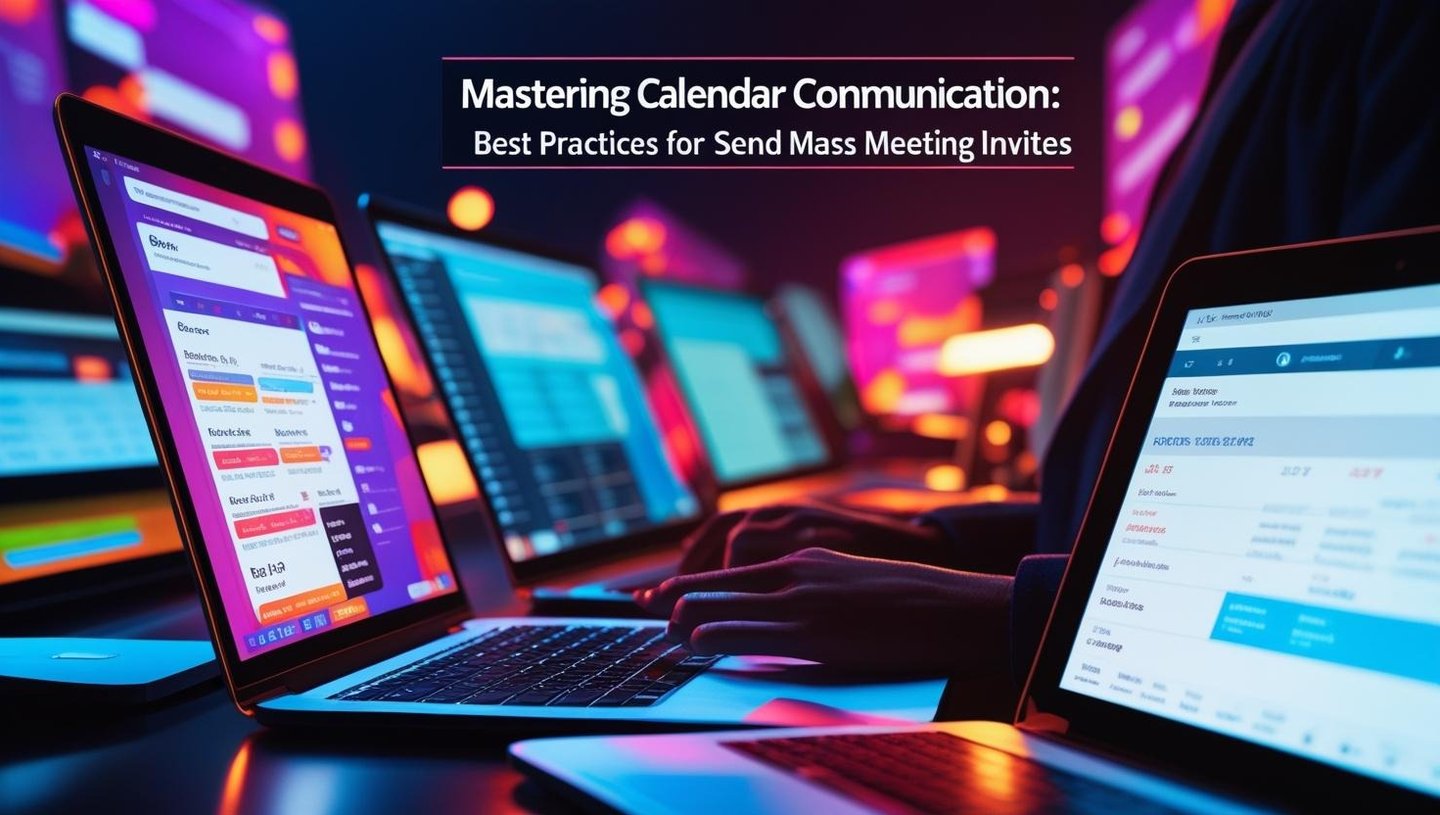Start sending invites for free - no card required - Click here
The Modern Guide to Managing Multiple Calendar Invites Across Teams and Time Zones
Managing meetings and scheduling has evolved from paper diaries to digital calendars that sync across devices and platforms. In today’s dynamic workplace, coordinating calendars across departments, time zones, and devices is a daily challenge. Whether you're handling internal meetings or planning with external partners, mastering the art of sending multiple calendar invites is essential.
BLOGS
7/29/20252 min read


Managing meetings and scheduling has evolved from paper diaries to digital calendars that sync across devices and platforms. In today’s dynamic workplace, coordinating calendars across departments, time zones, and devices is a daily challenge. Whether you're handling internal meetings or planning with external partners, mastering the art of sending multiple calendar invites is essential.
Why Calendar Management Is No Longer Just a Personal Task
Gone are the days when calendar planning was solely for executives or admin teams. Now, calendar coordination is a team-wide necessity. From marketing campaigns to cross-functional meetings and product launches, every department requires accurate and timely scheduling. That's where mastering techniques like how to send bulk meeting invites in Outlook or manage a mass calendar invite in Gmail becomes valuable.
Core Challenges in Scheduling Multiple Meetings
Time Zone Conflicts
Virtual teams often span regions, so syncing availability becomes complex.Version Mismatch
Employees use various platforms, some prefer Google Calendar, others Outlook, and some iCal.Changes and Updates
Shifting meeting times, rescheduling, or adding last-minute participants creates confusion unless managed systematically.
How to Stay Organized When Handling Bulk Calendar Tasks
1. Use Standard Naming Conventions
When sending out calendar invites in bulk, make your event titles, time zones, and recurrence settings clear.
2. Consider Platform Compatibility
Sending a bulk calendar invite in Google doesn't always behave the same way when opened in Outlook or Apple Calendar. Before distribution, test how the invite displays across major platforms.
3. Avoid Duplicate Invites
Sending multiple calendar invites in Outlook for the same event (especially with slight differences) can create versioning chaos. Use calendar grouping or event updates instead of re-inviting everyone from scratch.
Building Calendar Hygiene as a Team Culture
To make large-scale scheduling effective:
Share weekly availability blocks team-wide.
Centralize calendar event links in team documentation.
Educate team members on how to handle recurring vs. one-off meetings in shared calendars.
When to Use Mass Invites vs. Individual Scheduling
Mass calendar invites in Google work well for webinars or large team town halls.
Individual scheduling is better suited for one-on-one sessions or project briefings.
For high-volume invites, a dedicated invite calendar can help isolate team-wide events from personal ones.
Calendar Etiquette Tips
Always include an agenda.
Avoid scheduling during lunch hours or outside working time zones.
Send reminders 24 hours and 10 minutes before meetings.
Conclusion
Calendar mastery isn’t just about blocking time, it's about respecting others’ schedules and increasing efficiency. In a distributed, always-on world, your ability to confidently send bulk calendar invites in Google or handle multiple calendar invites in Outlook can determine how well your team communicates. Organize your time, and you’ll organize your success.
BulkCalendar.in
Send Bulk & Mass Calendar Invites Instantly
Contact us
Engagement
sales@letscalendar.com
+44 (0) 203 916 5117
© 2025. All rights reserved.
Help?
